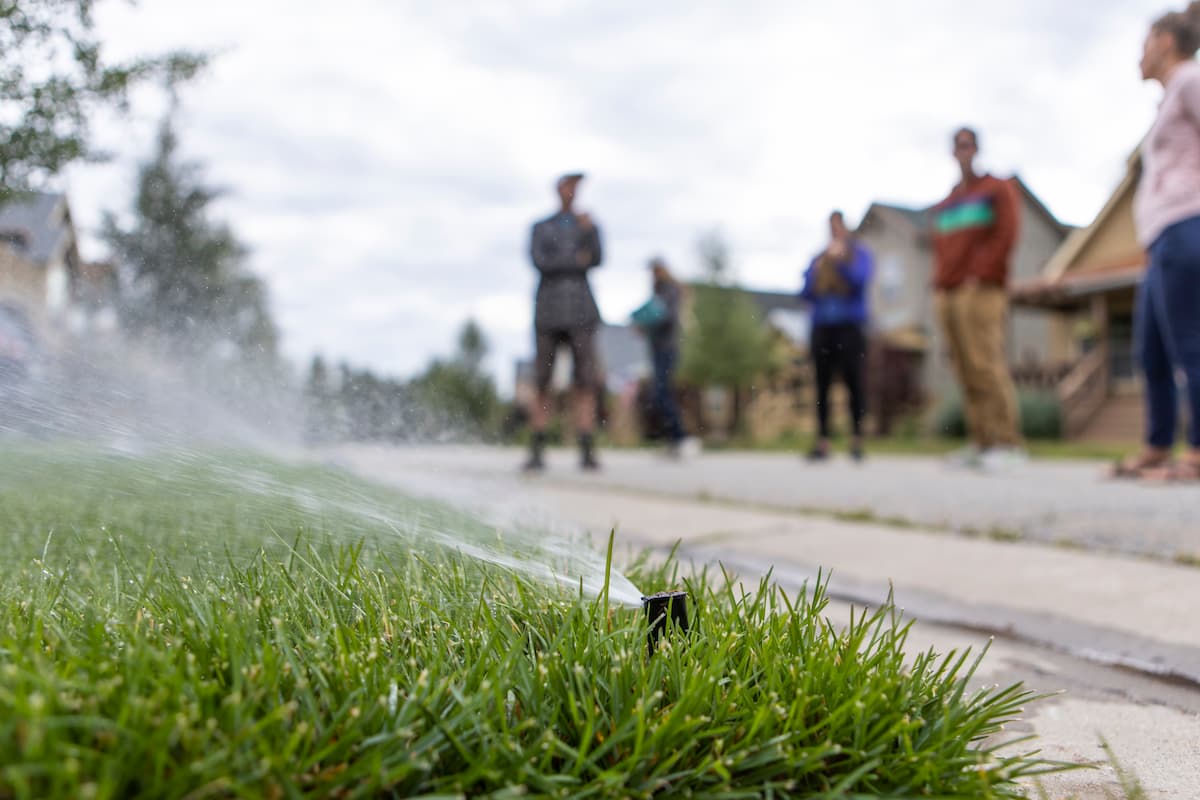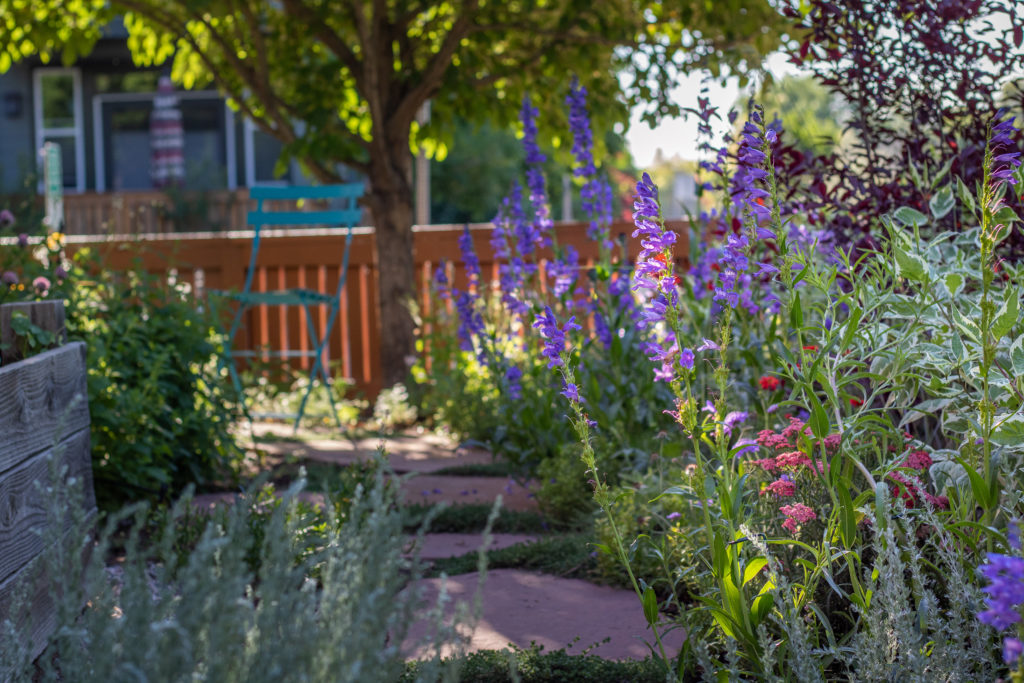
Dear Eartha, My neighbor had an irrigation assessment this summer and now he’s scheduling more work to improve his system in spring. Is the expense worth it? Is this really something I need to worry about in October?
No matter if it’s over your yard or a nagging pain in your ankle, worrying can get you into all kinds of trouble. Instead, identify a small and manageable action you can take. If we’re talking ankles, perhaps it’s time to call a doctor. In this case, it sounds like you’re weighing options for irrigation system improvements. Educating yourself is an excellent first step. Let’s put worry aside and tackle the topic together.
Getting to know your irrigation system
You can’t improve what you can’t measure, and an irrigation assessment is a great way to better understand your system, identify issues and weigh your options (including costs) for improvements. Locally, the High Country Conservation Center offers irrigation assessments through the Water Smart program.
During the assessment, an expert certified in efficient irrigation will visually inspect your system to check for obvious problems that waste water. They’ll make minor adjustments to sprinkler heads, change watering schedules to comply with local guidelines and conduct tests to understand how efficiently your system is operating. An assessment alone is estimated to help you reduce your water use by 15%, and less water used means a lower water bill.
While most irrigation systems are shut down for the season (meaning that you wouldn’t get an assessment until next spring), you can still inquire online at HighCountryConservation.org/water.
System improvements: Dollars and cents
Irrigation assessments include a report of recommended upgrades to keep your space beautiful without wasting water. The best part? Residents, homeowners associations and businesses can receive hundreds of dollars in rebates to help cover the cost of the assessment and efficiency upgrades.
For the Peak One Neighborhood homeowners association in Frisco, an assessment followed by some of the recommended upgrades translated into a 50% reduction on a recent water bill. That’s serious savings. To answer your question, the cost in this case was totally worth it. To answer that question in your own yard, start with an assessment. No matter the outcome, you’ll learn more about how your irrigation system is operating, you’ll ease the worry and you’ll get some cash back through rebates.

Improving your yard
While assessments remain a critical tool for anyone who uses an irrigation system to water grass, many folks are asking a bigger question — where can we get rid of water-thirsty grass AND how can we replace it with landscapes that thrive naturally? The question addresses a hot topic across the state: non-essential turf. If the only time turf, or grass, gets walked on is when it’s mowed or watered, it’s non-essential turf.
To give an example, many communities (even locally) are working to efficiently water parks, ballfields, and other important community spaces. At the same time, they’re replacing hard-to-water or little-used swaths of grass such as medians and other narrow strips of grass with native wildflowers, shrubs and perennials that thrive in our sunny and dry mountain environment.
Consider taking this approach to your own backyard. Maybe this means replacing a narrow strip of grass along a driveway with colorful groundcovers. Perhaps you’ll transform a scorched corner of lawn with sun-loving wildflowers. Or maybe you’ll throw your hands up and look to a landscaper for help.
Whatever your approach, doing it yourself or seeking professional support, the High Country Conservation Center is working on resources to help homeowners in 2024. And in the meantime, CSU Extension offers an excellent guide on plants that thrive at our elevation. While it may seem out of season to start planning for next summer, exploring some yard improvements now could ease your worry — and your water bill — next year.
Still hurting for motivation? Join High Country Conservation Center, the Blue River Watershed Group and Friends of Dillon Ranger District at Outer Range Brewing Co. on Wednesday, Oct. 25, for an informal happy hour to learn more about why our water use — and our landscapes — matter.
